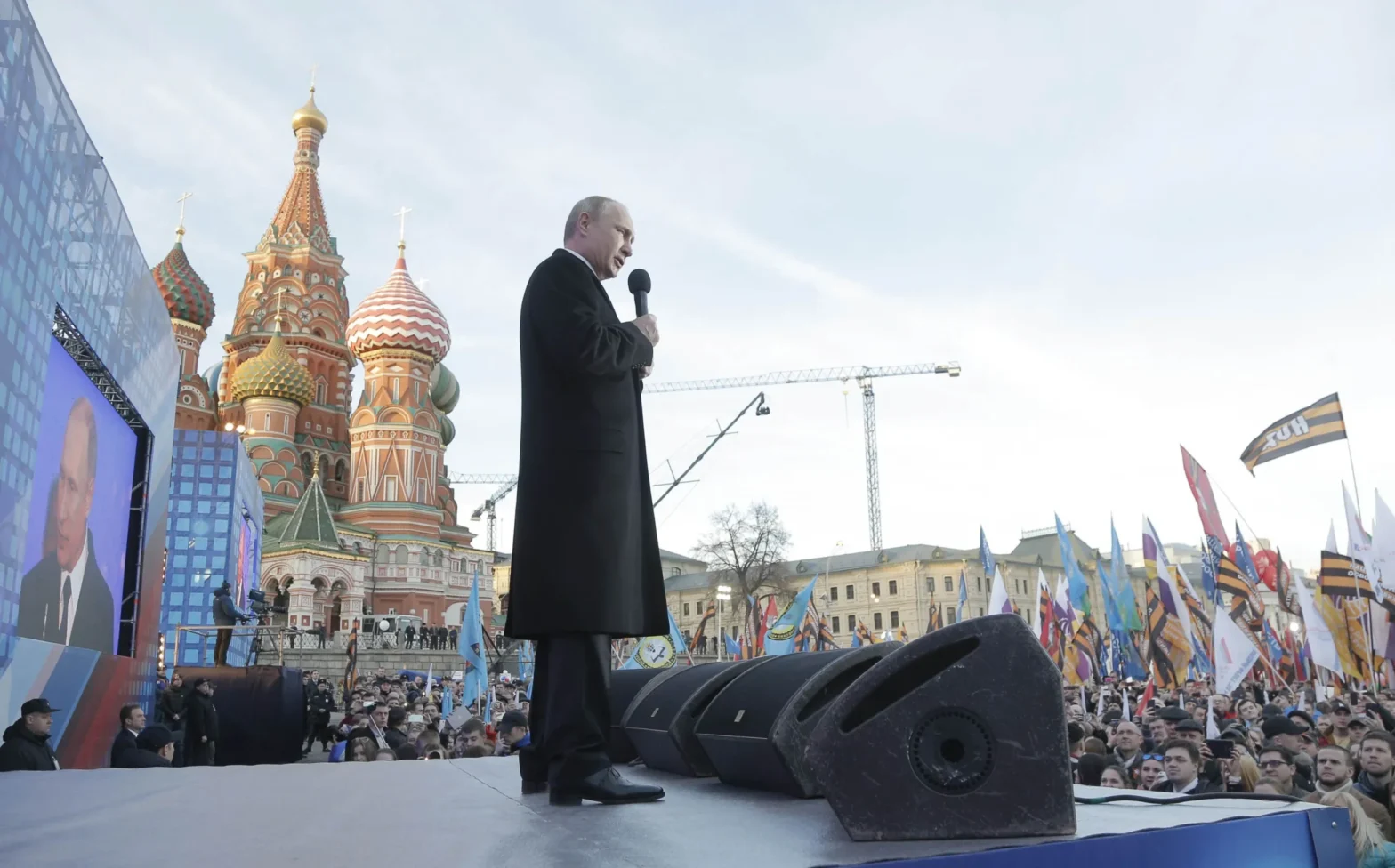The geopolitical spotlight returned to Moscow this week after former U.S. President Donald Trump used his appearance at the United Nations General Assembly to launch a scathing critique of Russia’s war in Ukraine. Trump, who is simultaneously running a combative campaign at home and positioning himself as a global statesman, referred to Russia as a “paper tiger” — a phrase meant to suggest a hollow power, fierce in appearance but weak in substance.
For the Kremlin, this characterization was not only an insult but a dangerous miscalculation. Within hours, Kremlin spokesperson Dmitry Peskov responded forcefully, rejecting any notion that Russia is faltering either militarily or economically. His rebuttal set the tone for a chorus of voices in Moscow — from government officials to nationalist commentators — who ridiculed Trump’s remarks and insisted that Russia’s campaign in Ukraine remains deliberate, sustainable, and necessary.
This exchange highlights more than just another war of words. It reveals the widening gulf between Russian self-perception and the image projected by critics abroad. It also underscores how rhetoric on the global stage — especially from figures like Trump, who still commands massive media attention — can reverberate inside Russia and shape international narratives.
Trump’s Combative Turn at the United Nations
When Trump returned to the U.N. stage after six years, many wondered how he would balance his “America First” themes with the expectations of world leaders gathered in New York. What they received was a speech brimming with provocation. He lambasted the U.N. as corrupt, criticized allies for weak military commitments, and turned his fire on Russia with unusual bluntness.
Calling Russia a “paper tiger” struck a particular chord because it fed into a Western narrative that Moscow’s military machine has been exposed in Ukraine. Losses in manpower, equipment, and battlefield setbacks have been well documented. But Trump’s words also carried political overtones: by downplaying Russia’s power, he was implicitly arguing that Ukraine — with proper backing — could defeat Moscow outright.
This represented a pivot. Trump, once criticized for sympathetic comments about Vladimir Putin, now publicly affirmed Ukraine’s potential for full recovery. For Ukrainians, this was cautiously welcomed. For the Kremlin, it was intolerable.
The Kremlin’s Rebuttal
Dmitry Peskov, long the public face of Putin’s administration, wasted no time in pushing back. Speaking to Russian state media, he declared Trump’s comment “misinformed, politically motivated, and fundamentally detached from reality.”
According to Peskov, Russia’s military campaign is not collapsing but “advancing in line with planned objectives.” He emphasized that the Russian economy has withstood Western sanctions, maintaining stability through alternative trade networks, domestic production, and continued energy exports. “Russia cannot be reduced to a slogan,” he said. “We are not a paper tiger. We are a nation with resilience, strategy, and the will to defend our interests.”
Nationalist voices in Russia were even more scathing. Prominent television hosts mocked Trump as a “comedian statesman” who misunderstands Russia’s depth of resources. Social media accounts linked to pro-Kremlin figures framed Trump’s remarks as proof of Western desperation — an attempt to convince the world of Russian weakness at a time when, they argue, Russia is consolidating its battlefield position.
Russia’s Self-Image: Deliberate, Not Desperate
A core theme of the Kremlin’s response was the insistence that its campaign in Ukraine is deliberate rather than desperate. By portraying its actions as measured, Moscow seeks to combat a narrative that it is stumbling or losing direction.
The Kremlin highlights several talking points:
-
Military capacity: Despite high casualties, Russia continues to field fresh troops and maintain artillery dominance in several sectors.
-
Economic resilience: Western sanctions have been partly offset by trade with China, India, and other non-Western partners.
-
Political stability: Putin’s grip on domestic power remains unshaken, with opposition largely neutralized and state media reinforcing official narratives.
These points aim to counter the Western portrayal of Russia as stretched thin and teetering on collapse. Instead, Moscow projects an image of calculated persistence — a long game that can outlast Western political cycles.
Trump’s Shift and Its Impact
Perhaps more noteworthy than Trump’s insult was his rhetorical pivot toward stronger support for Ukraine. In his U.N. remarks, he suggested that Kyiv has the capacity to fully restore its sovereignty if it receives consistent international backing. This was a departure from his earlier, more ambivalent tones about the conflict.
The impact was twofold:
-
For Ukrainians, it was a signal that Trump might now be aligning more closely with mainstream U.S. policy, which emphasizes continued aid to Kyiv.
-
For Russia, it was a reminder that Western resolve — even if fractured at times — remains focused on bolstering Ukraine.
The Kremlin’s strong response was not only about saving face; it was also about preventing Trump’s comments from galvanizing international momentum in favor of Ukraine’s military push.
Domestic and International Reactions
Inside Russia, the state-controlled media presented Trump’s remarks as yet another example of Western propaganda. The Kremlin’s rapid rebuttal allowed the government to seize the narrative before it could be internalized as a genuine critique.
Internationally, reactions varied. Some European analysts saw Trump’s “paper tiger” remark as a reflection of growing Western confidence that Russia’s war machine is overstretched. Others cautioned that dismissing Russia as weak could be dangerous, encouraging complacency in supporting Ukraine.
China, a key Russian partner, avoided direct comment but reiterated calls for a “peaceful resolution through dialogue,” a stance that tacitly allows Moscow to continue operations while avoiding deeper scrutiny.
The Symbolism of Strength
Russia’s projection of strength is central to its strategy, both domestically and abroad. From grandiose military parades on Red Square to Putin’s highly choreographed public appearances, the Kremlin carefully cultivates an image of unyielding resilience.
Trump’s “paper tiger” jab struck at the heart of that image. To be perceived as weak, especially by a former U.S. president with global media reach, was intolerable. The Kremlin’s rapid and forceful response reflects its sensitivity to narrative battles as much as to battlefield realities.
The Larger Strategic Picture
At its core, this episode is about more than insults. It reveals key dynamics in the current stage of the Ukraine war and international diplomacy:
-
Narrative control matters. Both Moscow and Washington know that public perception can shape policy. If Russia is seen as faltering, Western aid may accelerate; if Russia is seen as enduring, calls for negotiation may grow louder.
-
Trump remains influential. Even outside formal office, Trump’s words carry weight. For Russia, dismissing him outright is not an option — his possible return to the White House looms large.
-
The war is a test of stamina. Moscow frames its campaign as sustainable, while Kyiv and its allies argue that continued Western support can turn the tide.
Looking Ahead
As the war grinds on, exchanges like this — rhetorical battles on the world stage — will continue to shape international narratives. The Kremlin cannot allow the idea of weakness to take root, especially as it courts partners outside the West. For Trump, fiery remarks keep him in headlines and position him as a decisive voice on global affairs.
But for Ukraine, the stakes are far more concrete. Every shift in rhetoric among world leaders affects the flow of weapons, aid, and political backing that determines the trajectory of the battlefield.
In the end, the clash between Trump’s words and the Kremlin’s rebuttal is a microcosm of the larger conflict: a struggle over perception, power, and endurance. The world is watching closely, not just for battlefield outcomes but for the stories leaders tell about them.
Conclusion
The Kremlin’s sharp rejection of Trump’s “paper tiger” comment reflects a broader battle for control of the narrative in the war over Ukraine. By insisting that its campaign is deliberate, sustainable, and necessary, Moscow is trying to project strength in the face of mounting criticism. Trump’s pivot toward stronger support for Ukraine complicates that effort, reminding Russia that international resolve remains firm.
As the conflict drags on, both sides understand that perception can be as important as reality. Whether Russia is truly strong or hollow, the story told about it will shape the policies, alliances, and outcomes of this global confrontation.

